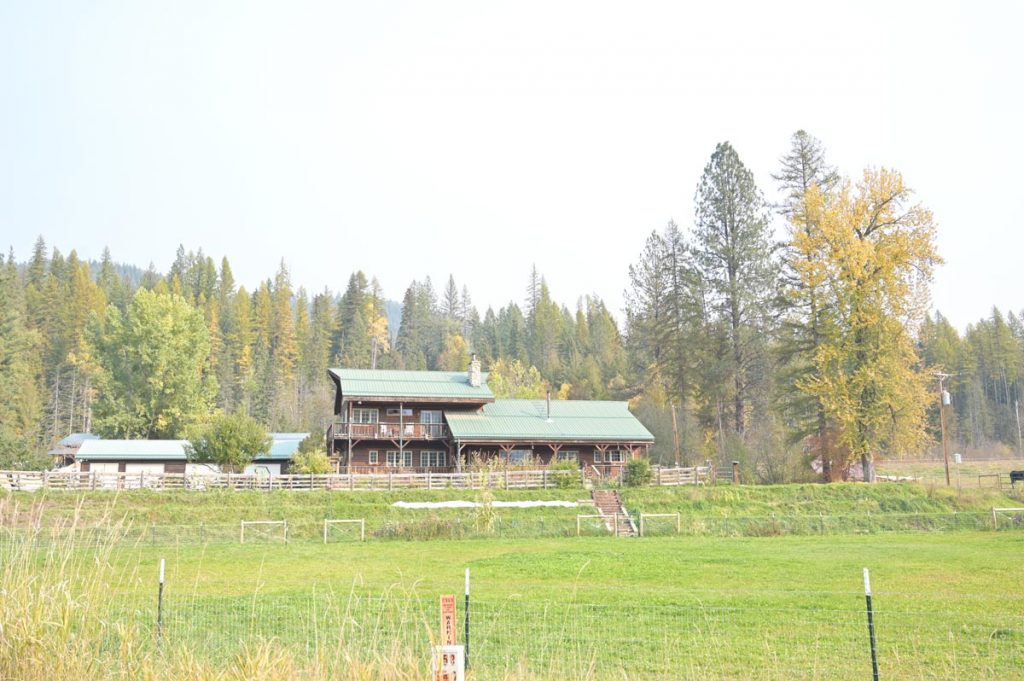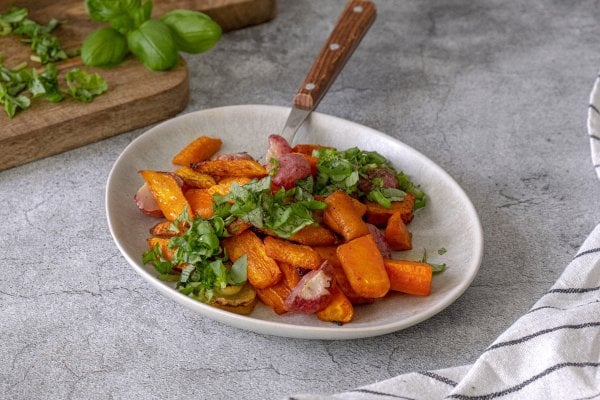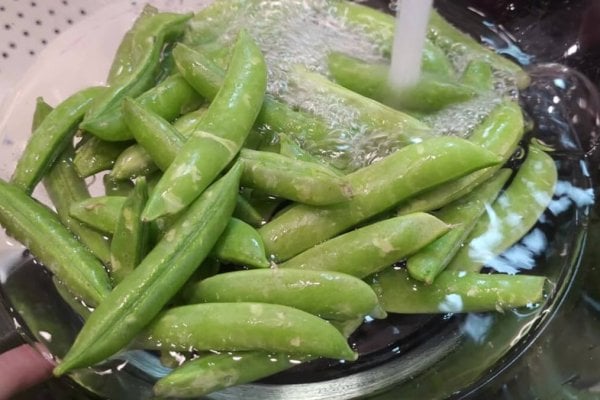The phrase ‘Made in the USA’ holds a special significance; it’s not just a label but represents a commitment to quality, ethics, and economic impact that resonates deeply with consumers and businesses alike. Let’s dive into why we’re doing our best to move more and more to purchasing these Made in the USA products.

Why Buy American Made?
With our current globalized market, where goods come from all corners of the world, it’s easy to want to shop around for the best (or cheapest) deal on products. Unfortunately, this sometimes leads to purchasing poorly made products that get shipped from overseas in order to save money.
Over the years, we’ve found that purchasing these inexpensive products can sometimes result in spending more than if we would have purchased a higher-quality (and more expensive) product in the first place.
Voting with Our Dollars
No individual family, culture, society or nation can survive if it consumes more than it produces. The more we buy outside of our own country, the less we produce, which creates an economic imbalance. This imbalance makes our country very vulnerable and is literally a national security issue.
It’s important to think about who or what our dollar provides for. Do we want to help put food on the table of someone halfway across the world or our own fellow Americans?

Quality and Standards
Many (though not all) of the work conditions in other countries are very poor and some are downright horrific. This kind of work environment is not something we want to support with our dollars. People are being very much taken advantage of in order for us to get a “good deal” on our goods. Furthermore, jobs that leave our American soil rarely come back.
This doesn’t also mean we’re saying we should be isolationists and only buy American made. What it should do is make us recognize our shopping patterns and see if we can do better. Trade is an important part of our economy. Just as each of us can’t truly live a life of self-sufficiency, America should work with other countries to produce and provide for one another.
Smaller Carbon Footprint
Products made closer to home also often have a smaller carbon footprint due to reduced transportation distances. This results in fewer greenhouse gas emissions and less energy consumption, contributing to environmental sustainability.
Additionally, American manufacturing adheres to rigorous environmental standards, minimizing pollution and waste generation compared to regions with less stringent regulations.

Made in the USA – How Do We Know?
If you’re wondering if your product was made in the USA, there is a sure-fire way to know. One might think seeing a flag sticker or flag label that it’s made in America, but this isn’t necessarily so. A simple flag on your product isn’t regulated and may simply be put there to make you think it’s American-made.
What you want to look for is a label that says “Made in the USA” or “Assembled in the USA.” Those are the only two stickers regulated. It’s also important to understand that there is a long list of exceptions to products that must be labeled.
If you have the product in front of you, check the tag. It will generally say where the product was made. If you’re looking online, it may take more time to learn where the products are made. You can sometimes check the shipping information to determine if it’s being shipped from overseas, but sometimes larger companies will pre-ship products to the USA for faster shipping, so this isn’t always a trusted method.
“Made” vs. “Assembled” in the USA
Just because a product says “Made in the USA” doesn’t necessarily mean it was 100% produced in the USA. We’re seeing more and more companies ship all the parts of their products here to the United States and put the finishing touches on it here.
So “Made in the USA” could just mean “assembled” in the USA from products shipped in from overseas. Ideally, you’ll want to see “Produced and manufactured in the USA.”
Buy Small, Local (or Ultra-Local)
When looking to support American-made products, it’s best to shop locally for those items available. We understand this isn’t always a possibility, so looking for products as close to home as you can is next best.
If you can shop ultra-local, this helps support your own community’s economics as well as the businesses and families in your town. Buy produce from local farmers. See if there are people in your community producing textiles. We like to make it a challenge to see how many products we can buy from within our own city and state.
It’s true that these products may be more expensive compared to those from larger corporations (or those from overseas), but when we vote with our dollars and support these smaller businesses, they’re able to eventually reduce their overhead and costs.
Another trick we like to use is if we find a product we really like from Amazon, we look to see if the company has their own website. Buying directly from the producer (instead of a third-party app like Amazon), puts a lot of money back in the producer’s pocket.

Our Favorite Made in the USA Products
- Pleasant Hill Grain – I’ve been purchasing my small appliances from Pleasant Hill Grain for over 15 years now and have been so pleased with both their quality products and their customer service. Not all their products are USA made, but they have quite an assortment of items that are.
- Lehmans – Lehmans is another company we’ve been buying from for over a decade. We love the variety they offer and many of their products are American-made. Shop Lehmans and use coupon code “1FH5CT” for 15% off your order.
- American Blossom Linens – This is one of our favorite companies for bed sheets, towels and even blankets! Yes, they are more expensive than the sheet set you could buy at your local Walmart, but we’ve had ours for almost three years now and they just keep getting softer! Use code “HOMESTEADINGFAMILY” for 20% off at checkout.
- Homestead Iron – This is a small, family-owned and operated company that sells extremely high-quality gardening tools. We’ve purchased multiple items from them and are very impressed. Again, you’ll pay more upfront, but you won’t have to replace your garden tools for generations to come. To save 10%, use code “homesteadingfamily” at checkout. We have more information answering the question “Are quality garden tools worth the cost?” here.
- Vermont Flannel – We have a few Vermont Flannel shirts and have loved them! If you’d like to shop, use that link and enter coupon code “HOMESTEADINGFAMILY” at checkout for free shipping on orders of $100 or more (this offer expires on 12/31/2024). This offer cannot be combined with other offers, prior purchases, or sale prices. Bulk, custom, and international orders are excluded. One use per customer.
- All American Clothing – To purchase apparel manufactured in the USA, Josh switched to the All American Clothing brand about two years ago for all of his jeans, and he’s loving the quality and durability.
- All-American Pressure Canner – I have multiple pressure canners and the All-American pressure canners are not only my favorite but also, in my opinion, the best quality. They’ve even come out with multiple fun colors that make preserving just that much more fun!
- A.M. Leonard – They have a wide range of tools for the farm and garden, including a large selection of USA-made products. Not all their products are USA-made, so look carefully.
- Caprine – Caprine Mohair socks are actually a company made right here in our home town. They’re so comfy and very high quality.
- Duckworth – This is another American-made wool company that sells wool shirts, jackets, etc. 100% wool is going to keep you both cool in hot weather and warm in cold weather and won’t get stinky like some synthetic materials. Get 20% off your first order if you sign up for their email list.
- Dripworks – Dripworks also has a large selection of USA-made products, but not all. The items made in the USA should be clearly marked. Use coupon code “HMSTF1” at checkout for 5% off your order.
- Redmond Life & Redmond Agriculture – We’ve been shopping from Redmond Life and Redmond Agriculture for over 20 years now and have no intention of changing. The customer service is great, they stand behind their products and they’re very reasonably priced. Use coupon code “HFSalt” to get 15% off your order at checkout.
- Riverwood Trading Co. – This company offers hand-carved wooden kitchen tools that are built to last!
- Truly Free – There is a very big difference between soap and detergent, and many modern laundry machines need detergent, but this is something that’s very hard to make at home and most can be very harmful to our health. Truly Free (formerly My Green Fills) is a great company that we’ve been using for over four years now. Use coupon code “HOMESTEADINGFAMILY30” at checkout for 30% off your order.
- Origin USA – This is another great American-made clothing company. They’re known for their jeans, but they offer many other clothing items. You can save 10% when you sign up for their newsletter!
- Lodge & Stargazer Cast Iron – Both Lodge and Stargazer are American-made and known for their cast iron pans. Unfortunately, this doesn’t include the enameled pans. At this time, there aren’t any enameled cast iron that are made in the USA. Stargazer cast iron pans are my favorite and you can shop the Stargazer products here. Lodge has some great products as well with a lower price point. Learn more about choosing the right cast iron pans here.
- Red Ants Pants – Red Ants Pants are specifically designed and made for women. They have multiple styles and fits for all shapes and sizes and are built tough for life on the homestead.
As always, this is a journey, we don’t need to switch everything we’re buying to American-made overnight. Our recommendation is, as your items wear out or run out, try replacing them with something made a little closer to home.



















